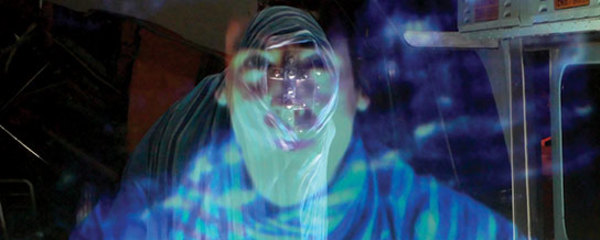Tim Hecker: Static and Hum
Give Tim Hecker 50 minutes. Anything less is a waste, ’cause the Canadian sound artist–who […]
Tim Hecker: Static and Hum
Give Tim Hecker 50 minutes. Anything less is a waste, ’cause the Canadian sound artist–who […]

Give Tim Hecker 50 minutes.
Anything less is a waste, ’cause the Canadian sound artist–who was born in Vancouver, but resides in Montreal–ain’t a three-chord rocker, and he’s not a disco-edit DJ. Rather, Hecker is a careful craftsman with an interest in building albums instead of songs. From the cathedral preeminence of Haunt Me, Haunt Me to the lost-at-sea aimlessness of Radio Amor, Hecker takes care to service the whole, treating individual songs like organs in a body. As a result, the most memorable elements of any TH outing are the biggest: He trades in mammoth, album-spanning mood shifts, with changes masked by a pace as languid as that of glaciers melting.
But we’ve learned to wait on Hecker. He changes character gradually with each record rather than hopping between genres. His latest release–a familiar-sounding, 15-track record entitled Harmony in Ultraviolet (Kranky)–works the same subtle dynamics. “There’s quite a trajectory over the 50 minutes: between different movements, between really mellow, traditional ambient pieces and kind of neo-Boredoms electronic metal insanity,” says Hecker.
These shifts are as gradual as growing grass, but don’t call his technique staid. “[Artists] always [have] this desire to do different things, but there’s often little respect for craft or developing a voice,” he says. “That can take a long time; that can be slow over different records. I kind of reject the need to be different.”
Indeed, Hecker just gets better at his own brand of beauty, one that champions opposing poles–or, more accurately, bends them until they touch. His music comes across in waves, slowly ebbing between restless motion and static force, between painful noise and calming melody. It’s these crosshatched moments where his pieces become most rewarding: when a mangled piano line wanders into the heart of an unwieldy swell, when a warm wash boils up into scalding steam and all that’s left is the physicality of the sound.
“Sometimes when I listen to something with a really interesting chord structure from a rock band, it totally underwhelms me,” he confesses. “Sometimes [it ‘s] pretty pansy or pretty weak in terms of its power. But then I listen to someone like Merzbow and find it just as dissatisfying because there’s a total absence of tonal qualities. Melody gives a kind of redemption, a sort of power. It’s so effective with noise.”

